
Donald Trump Signs Proclamation to Ban Travel from 12 Countries – Details
Framing it as a matter of national security and foreign policy leverage, the Trump administration has unveiled sweeping new travel restrictions targeting countries with high visa overstay rates, poor vetting standards, and ties to terrorism.
President Donald Trump has signed a proclamation prohibiting nationals from 12 countries from traveling to the United States, citing heightened national security concerns. The order was signed on Wednesday, June 4, 2025.
The countries subject to full travel bans include Afghanistan, Myanmar, Chad, Congo, Equatorial Guinea, Eritrea, Haiti, Iran, Libya, Somalia, Sudan, and Yemen. In addition, partial restrictions were imposed on nationals of Burundi, Cuba, Laos, Sierra Leone, Togo, Turkmenistan, and Venezuela.
The proclamation provides exceptions for lawful permanent residents, existing visa holders, individuals in certain visa categories, and persons whose entry would serve U.S. national interests.
The administration described the move as country-specific, tailored to unique circumstances, and intended to prompt better cooperation from foreign governments.
Each affected country is cited for specific deficiencies. In Afghanistan, the Taliban— a Specially Designated Global Terrorist group—holds control, and the country lacks both a functional passport authority and proper screening mechanisms. Afghanistan also reported high visa overstay rates, including 29.30 percent for student and exchange visitors.
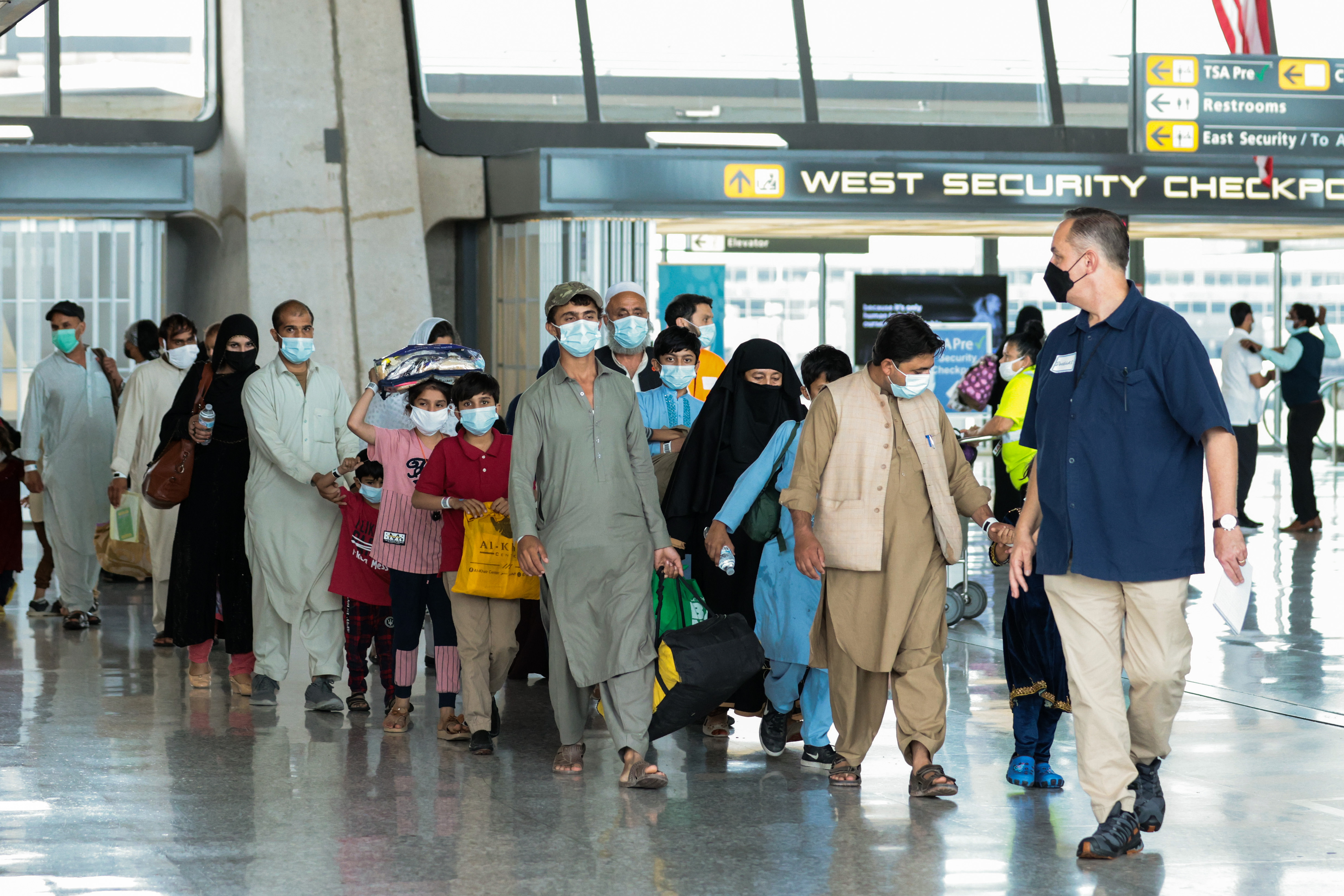
Refugees walk through the departure terminal to a bus at Dulles International Airport after being evacuated from Kabul following the Taliban takeover of Afghanistan on August 31, 2021 in Dulles, Virginia | Source: Getty Images
Myanmar showed B1/B2 visa overstay rates of 27.07 percent and a 42.17 percent overstay rate for students, while also failing to cooperate on the repatriation of its nationals.
Chad recorded one of the highest overstay rates in 2023—49.54 percent for B1/B2 visa holders—indicating what the proclamation calls "a blatant disregard" for immigration rules.
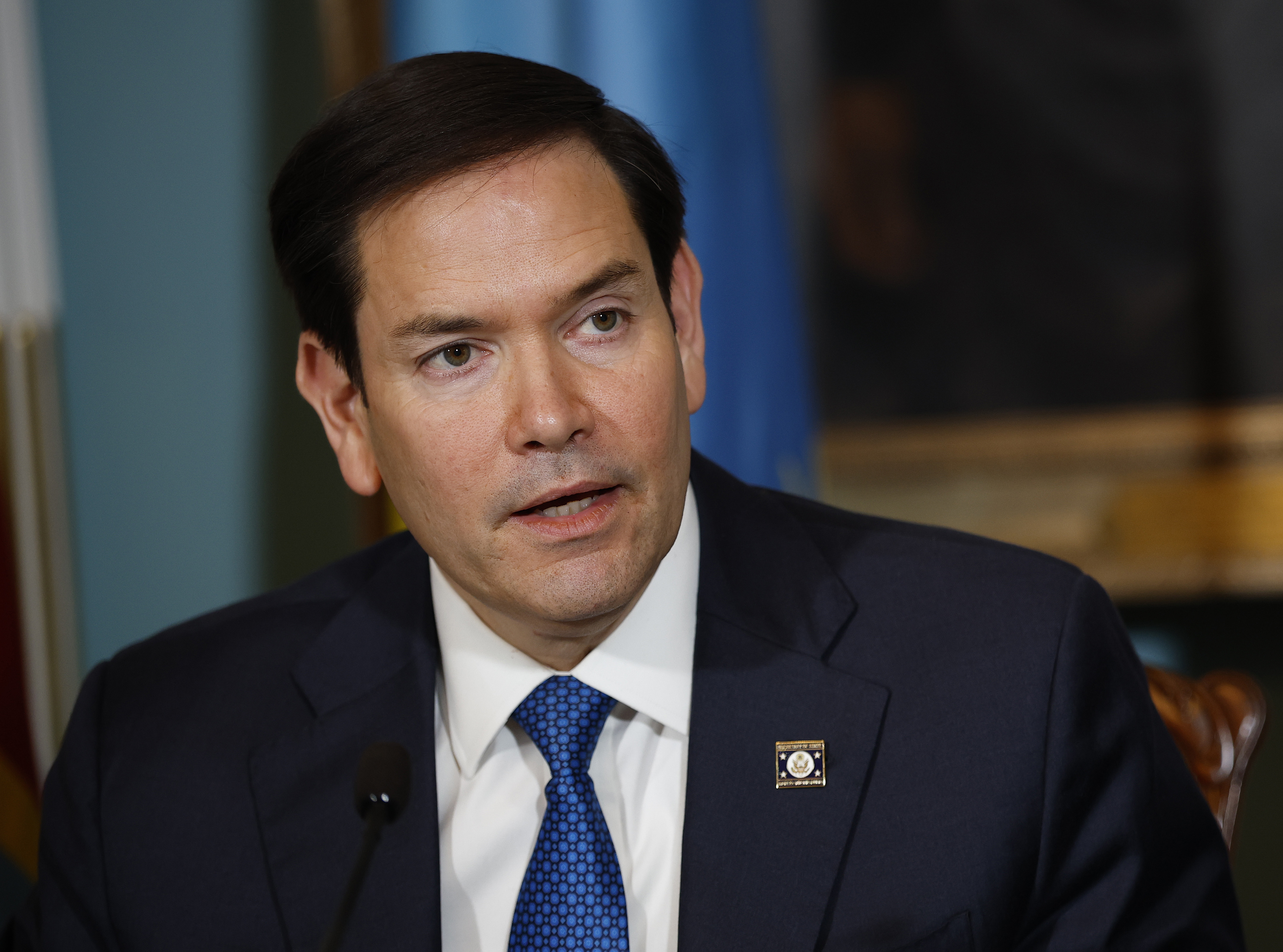
U.S. Secretary of State Marco Rubio delivers remarks during a a Declaration of Principles signing ceremony with Democratic Republic of the Congo Foreign Minister Thérèse Kayikwamba Wagner and Rwandan Foreign Minister Olivier Nduhungirehe at the State Department on April 25, 2025 in Washington, DC | Source: Getty Images
The Republic of the Congo reported overstay rates exceeding 29 percent for business travelers and 35 percent for students. Equatorial Guinea’s student visa overstay rate was notably high at 70.18 percent.
In Eritrea, the U.S. has no access to criminal records, and the country refuses to repatriate deportees. Haiti had overstay rates above 31 percent for business travelers and lacks a central law enforcement authority, contributing to what officials describe as a migration-driven national security risk.
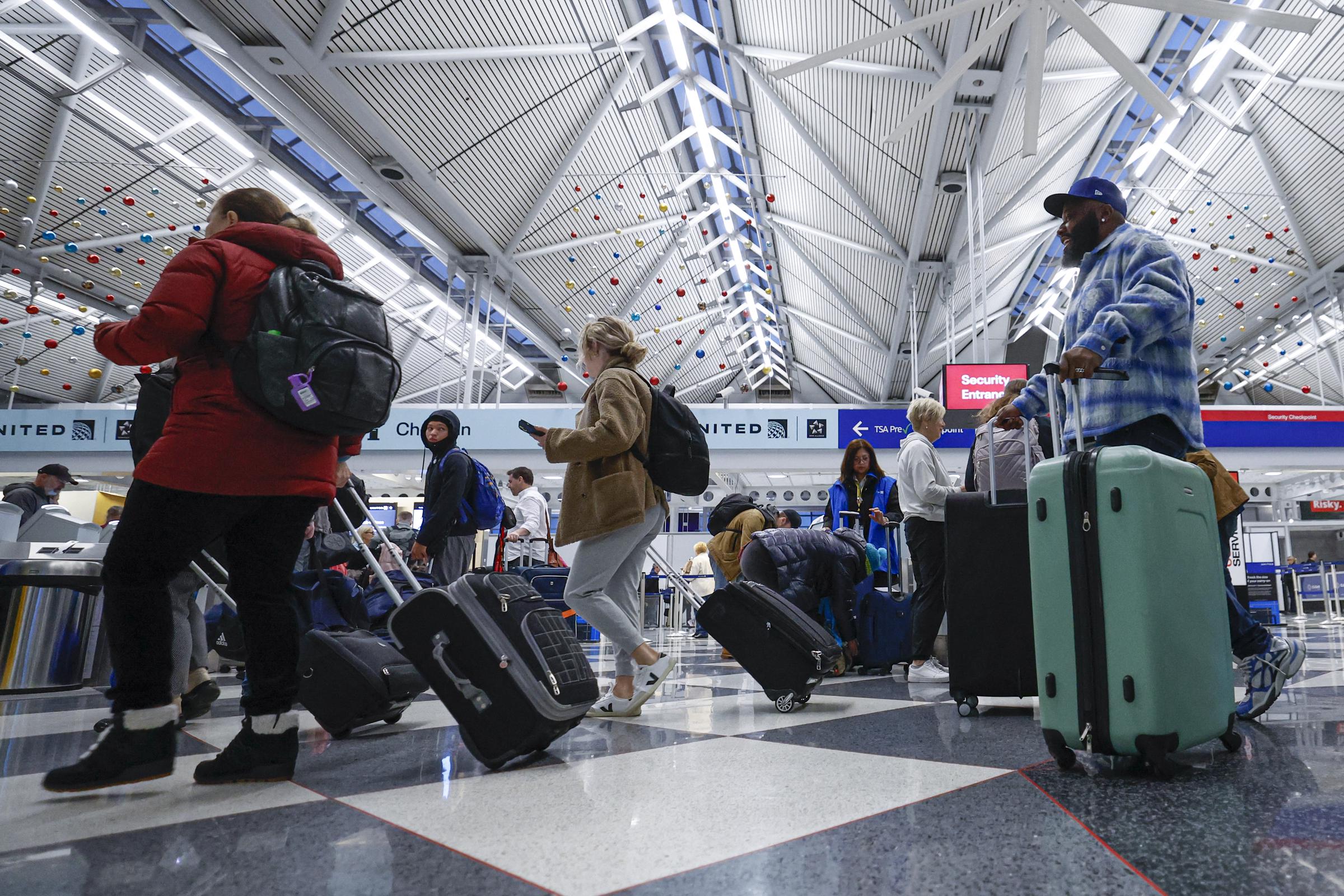
Travelers walk through O'Hare International Airport in Chicago, Illinois, on November 22, 2024 | Source: Getty Images
Iran and Cuba are designated state sponsors of terrorism and are cited for non-cooperation with U.S. law enforcement and refusal to accept deported nationals.
Libya, Somalia, and Yemen are all noted for their lack of central authority and ongoing conflict. Somalia, in particular, is identified as a terrorist safe haven, while Yemen has been the site of U.S. military operations since January 2025.
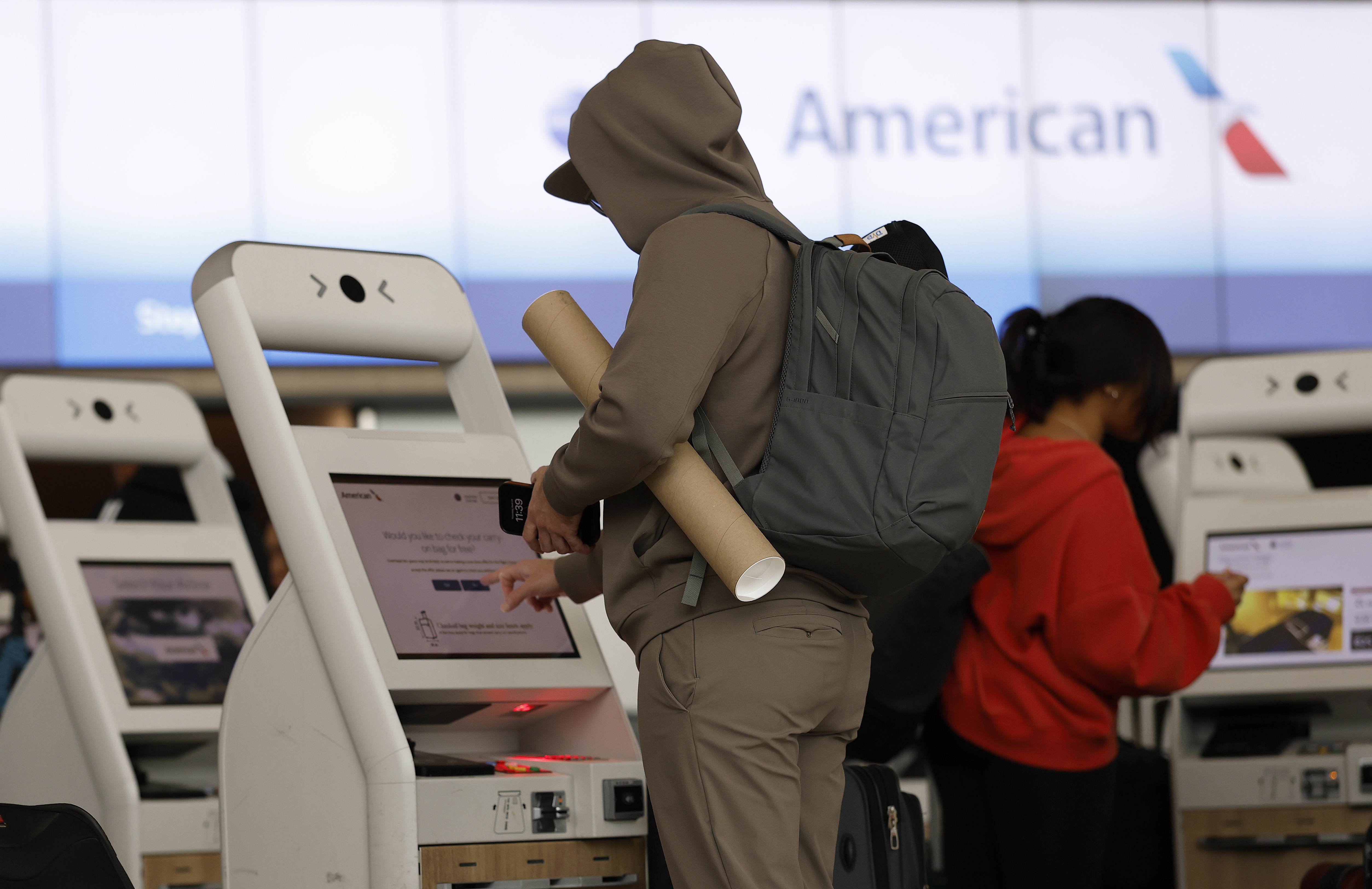
Passengers check in for an American Airlines flight at San Francisco International Airport on April 24, 2025 | Source: Getty Images
Other countries named in the proclamation face similar concerns. Sudan lacks document integrity and reported overstay rates above 26 percent.
Burundi, Laos, and Sierra Leone posted significant visa overstay rates and failed to accept back removable nationals. Togo and Turkmenistan demonstrated similar patterns of non-compliance. Venezuela, amid political instability, lacks a competent civil authority and recorded a B1/B2 visa overstay rate of 9.83 percent.
While the restrictions are firm, the administration emphasized they remain conditional. The U.S. government may revise or lift them should the affected countries demonstrate improved cooperation and compliance with security and immigration protocols.
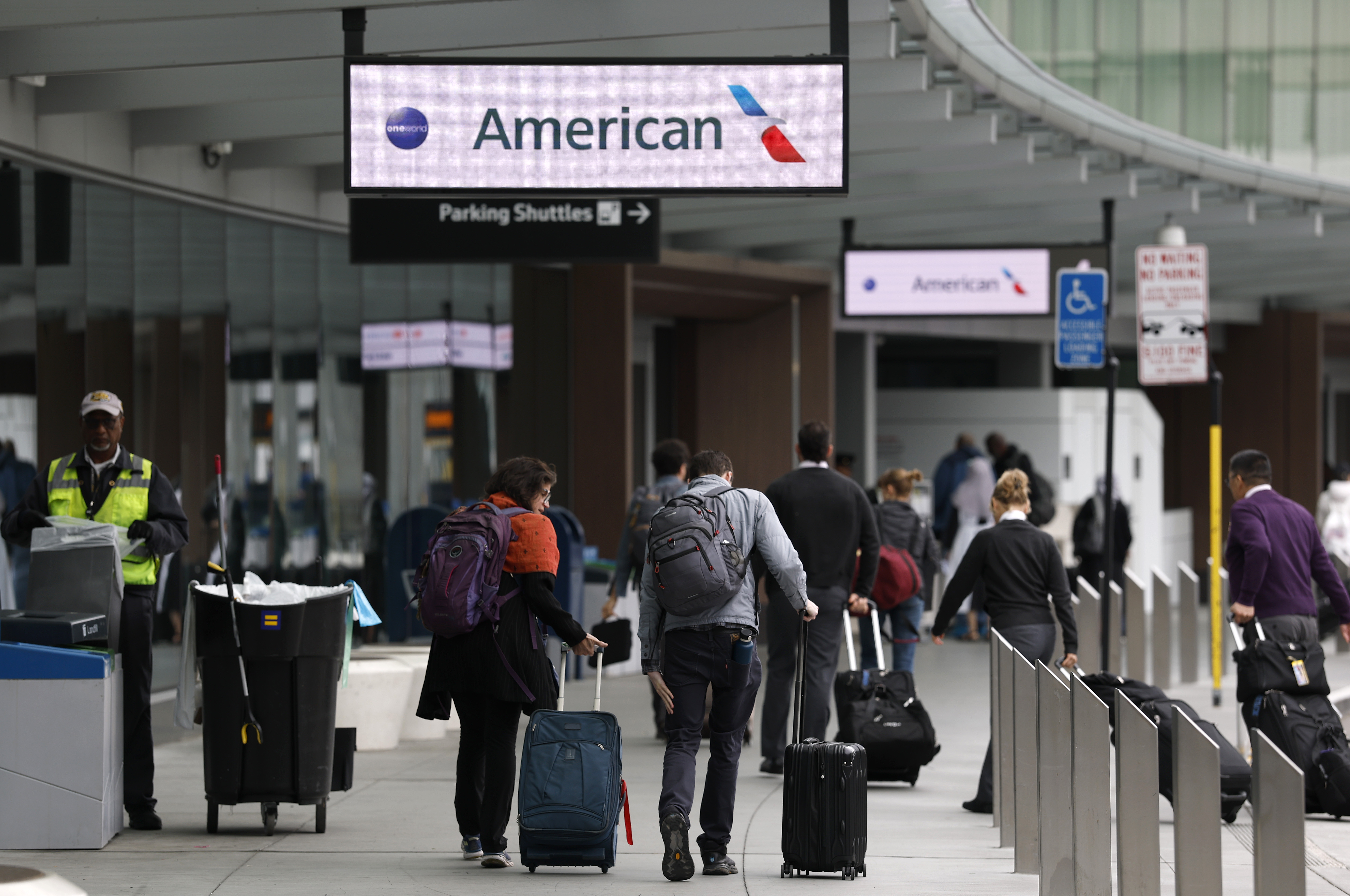
Travelers arrive at San Francisco International Airport on April 24, 2025. | Source: Getty Images
The ban is set to take effect on Monday, June 9, 2025, at 12:01 a.m., providing a brief implementation window designed to avoid the confusion and airport disruptions that accompanied a similar policy rollout by Donald Trump in 2017.
Previously, the Trump administration issued an updated travel advisory including North Korea, urging Americans to remain vigilant and informed in response to escalating global security concerns.
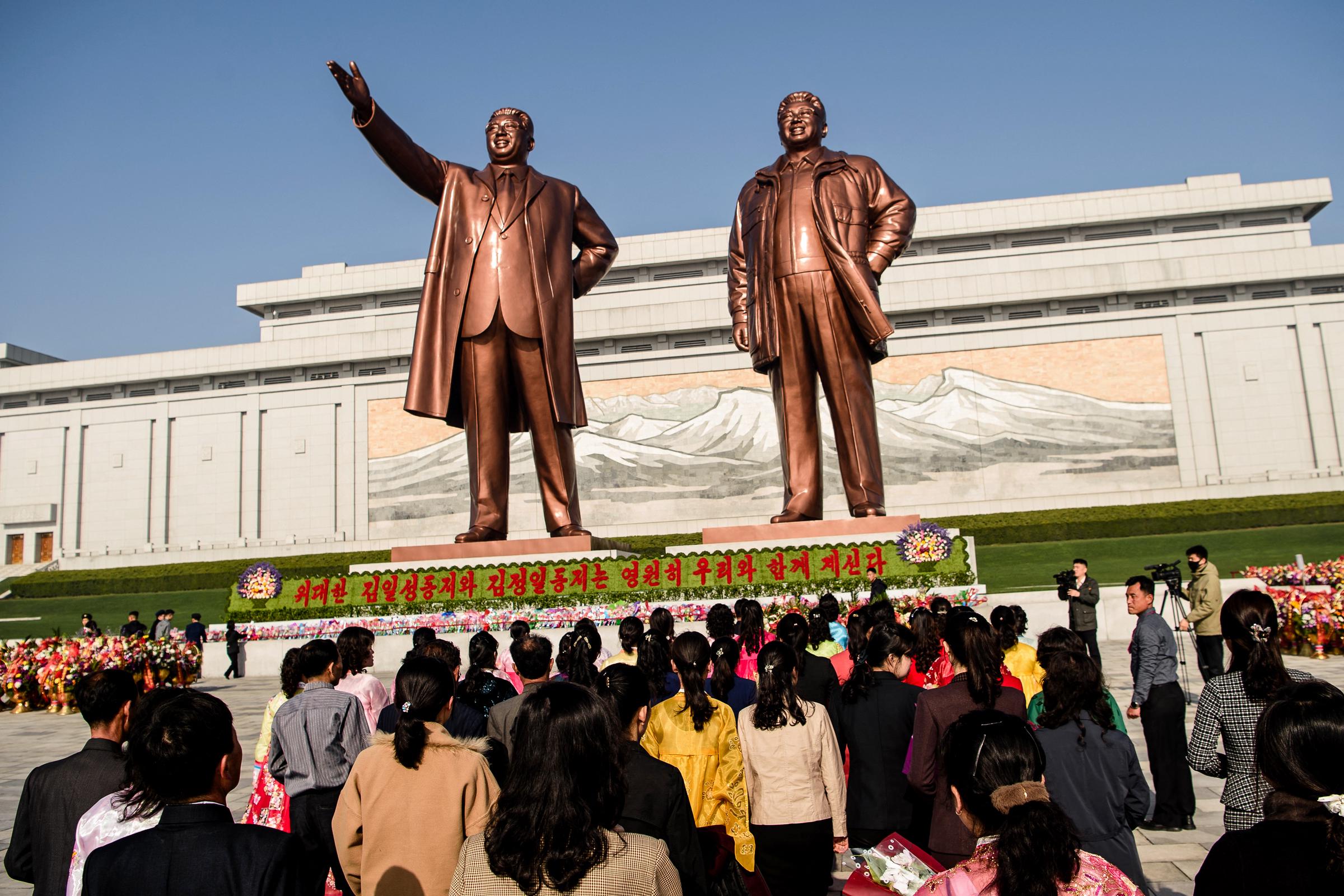
People pay tribute to Kim Il Sung and Kim Jong Il's statues in Pyongyang on April 15, 2025, for Kim Il Sung's 113th birthday. | Source: Getty Images
The U.S. Department of State has updated its highest-level travel advisory, adding North Korea (NK) to its "Level 4: Do Not Travel" list. The update, issued on April 29, 2025, brings the total number of countries under the most severe warning to 21.
The advisory warns, "Do not travel to the Democratic People's Republic of Korea for any reason," citing the ongoing risk of "arrest, long-term detention, and the threat of wrongful detention of U.S. nationals."
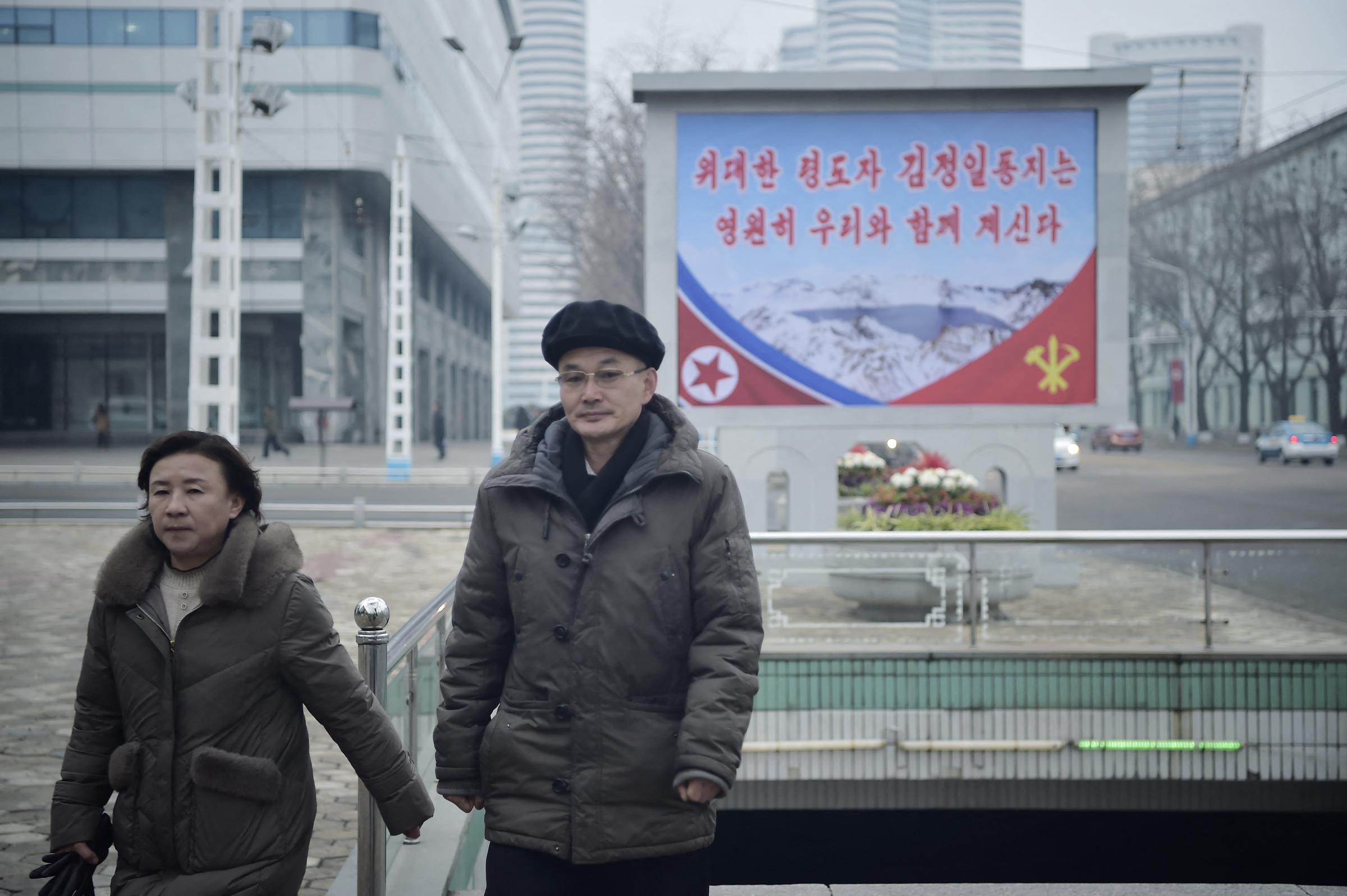
People walk by a poster in Pyongyang on February 16, 2025, marking Kim Jong Il's 83rd birthday | Source: Getty Images
U.S. passports are not valid for travel to NK unless specially authorized by the Secretary of State — exceptions that are granted "only in very limited circumstances."
In addition to legal restrictions, the U.S. government cannot directly assist its citizens in North Korea due to the absence of diplomatic relations. Sweden serves as the U.S. protecting power in Pyongyang, but is often denied access to detained Americans. "The U.S. government cannot guarantee your release," the advisory notes.
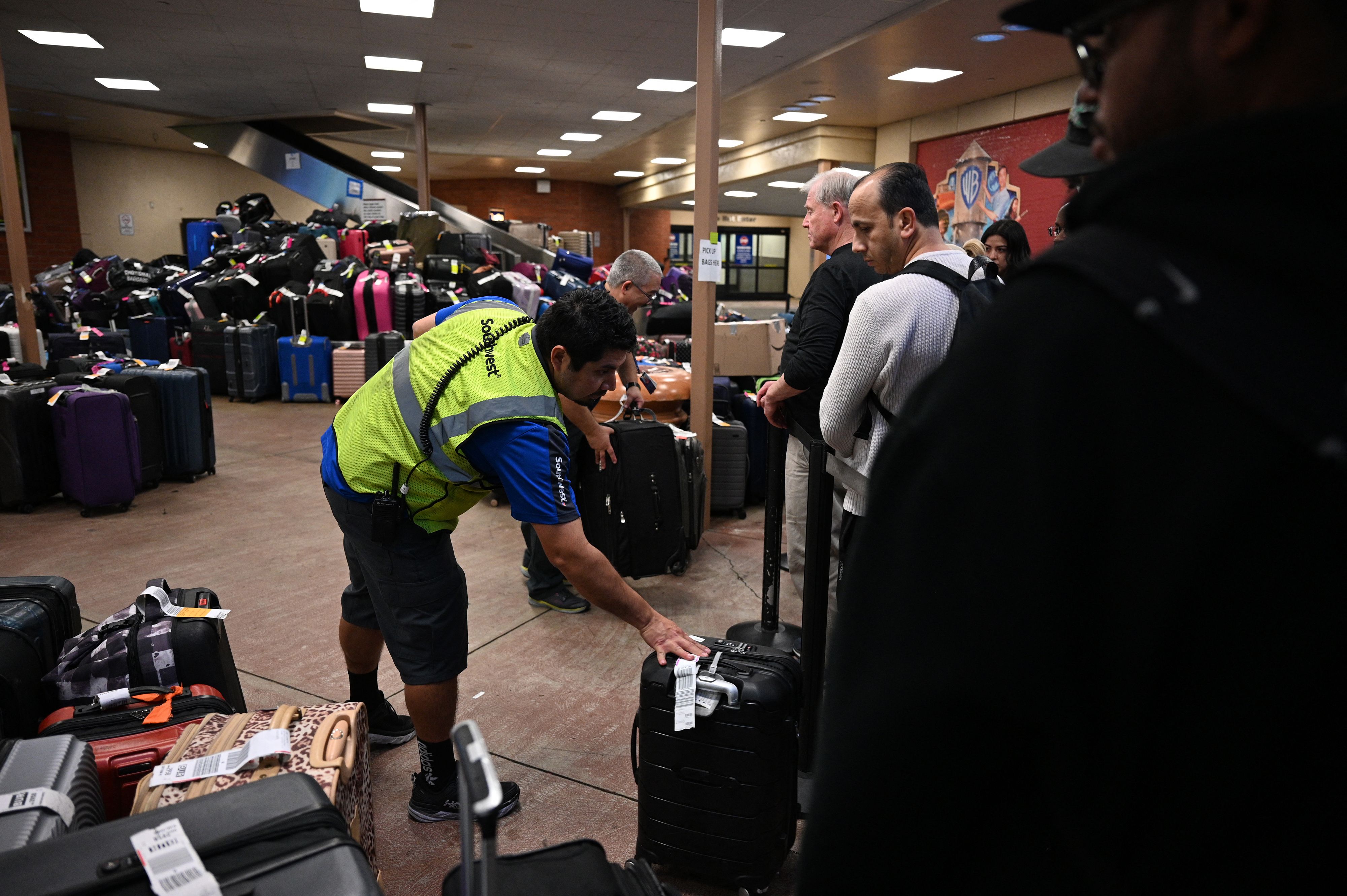
An airline employee pass luggage to passengers at a baggage carousel at Hollywood Burbank Airport on December 27, 2022 | Source: Getty Images
Travelers who receive special authorization are urged to have contingency plans in place and "draft a will and designate appropriate insurance beneficiaries." The state also emphasized that the Centers for Disease Control and Prevention (CDC) website provides the latest Travel Health Information for travelers going to and from the United States.
North Korea's inclusion reflects broader risks that guide Level 4 travel designations. These advisories apply to countries where threats to personal safety are extreme, often due to armed conflict, terrorism, civil unrest, or weak infrastructure.
With NK included, the Level 4 list spans 21 countries. It also includes Burkina Faso, Yemen, Iran, South Sudan, Syria, the Democratic Republic of the Congo, Afghanistan, Lebanon, the Central African Republic, Belarus, Iraq, Ukraine, Venezuela, Haiti, Libya, Somalia, Russia, Burma (Myanmar), Mali, and Sudan.
This growing list reflects shifting global risk conditions and underscores the importance of careful travel planning. The four-tier system, ranging from Level 1 to Level 4, is regularly reviewed and revised based on evolving security, health, and political factors.
Beyond its highest warnings, the State Department has elevated 10 countries to its "Level 3: Reconsider Travel" advisory in 2025. These include Papua New Guinea, Burundi, Uganda, Bangladesh, Colombia, Guinea-Bissau, Trinidad and Tobago, Niger, Chad, and Pakistan.
Each update addresses heightened risks ranging from terrorism to violent crime and political unrest. For Uganda, the advisory, updated on April 23, highlights concerns over crime, terrorism, and laws targeting individuals based on sexual orientation. It also urges travelers to reconsider visiting due to heightened political tensions ahead of the 2026 national elections, which may trigger unplanned and escalating demonstrations.
In addition to the threat of terrorism, violent crime — including armed robbery and sexual assault — remains a persistent concern, particularly in cities like Kampala, Jinja, and Entebbe, where law enforcement often struggles to respond effectively.
Adding to these dangers is the 2023 Anti-Homosexuality Act, which has escalated risks for individuals perceived to be LGBTQ+. "Assault and harassment cases linked to support for lesbian, gay, and bisexual persons have happened across the country," the advisory notes.
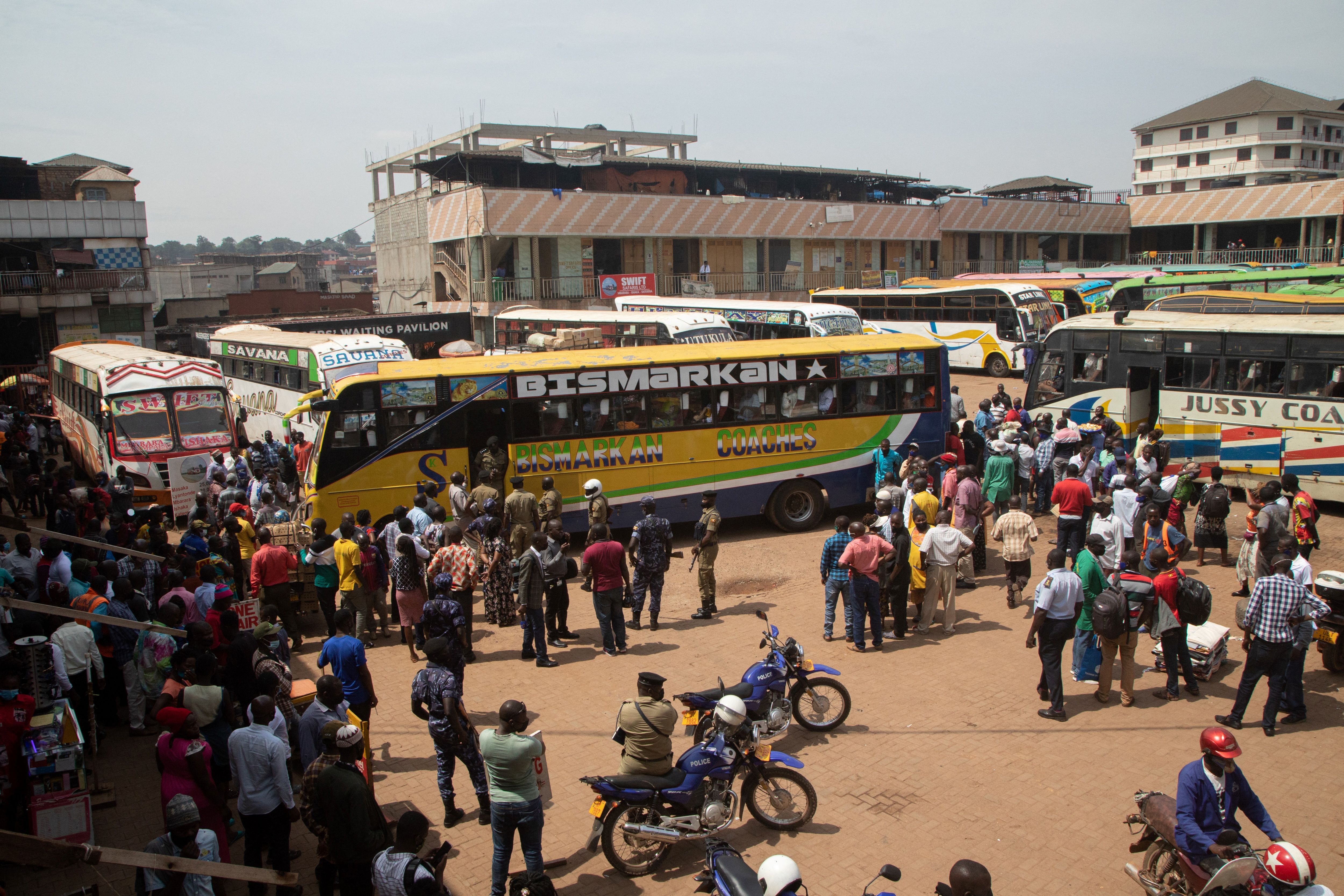
Police officers oversee a crowd gathered at a bus terminal in Kampala, Uganda, on October 26, 2021 | Source: Getty Images
Travelers are advised to avoid demonstrations and large crowds, as these can quickly become dangerous. They should keep a low profile, avoid drawing attention to themselves, and stay aware of their surroundings, particularly in busy tourist areas. Displaying wealth, such as wearing expensive jewelry or using smartphones, should be avoided.
Caution is also advised when walking or driving at night. Travelers are urged not to resist if confronted by robbers and to refrain from opening their hotel or residence doors to strangers unless their identity is confirmed.
Visitors should also stay alert when visiting banks or ATMs, as these locations can be targets for criminals. Enrolling in the Smart Traveler Enrollment Program (STEP) is recommended, as it allows the U.S. government to contact travelers in emergencies and provides important updates.
Given the risks, travelers are urged to review Uganda's Country Security Report for the latest information and prepare an emergency plan.
Meanwhile, Mexico continues to face serious security concerns, prompting the U.S. Department of State to maintain a state-by-state travel advisory rather than applying a single national risk level.
The latest update, issued on September 6, 2024, includes changes for Chiapas and Durango and reinforces longstanding warnings about violent crime. According to the advisory, "violent crime – such as homicide, kidnapping, carjacking, and robbery – is widespread and common" in many parts of the country.
Six states — Colima, Guerrero, Michoacán, Sinaloa, Tamaulipas, and Zacatecas — are under "Do Not Travel" guidance, the highest level. These areas experience persistent cartel activity, targeted killings, and frequent armed confrontations that pose significant risks to travelers.
Several other states, including Jalisco, Guanajuato, Sonora, and Chihuahua, are classified under "Reconsider Travel." These regions have also seen elevated violence, particularly in the form of territorial disputes between organized crime groups.
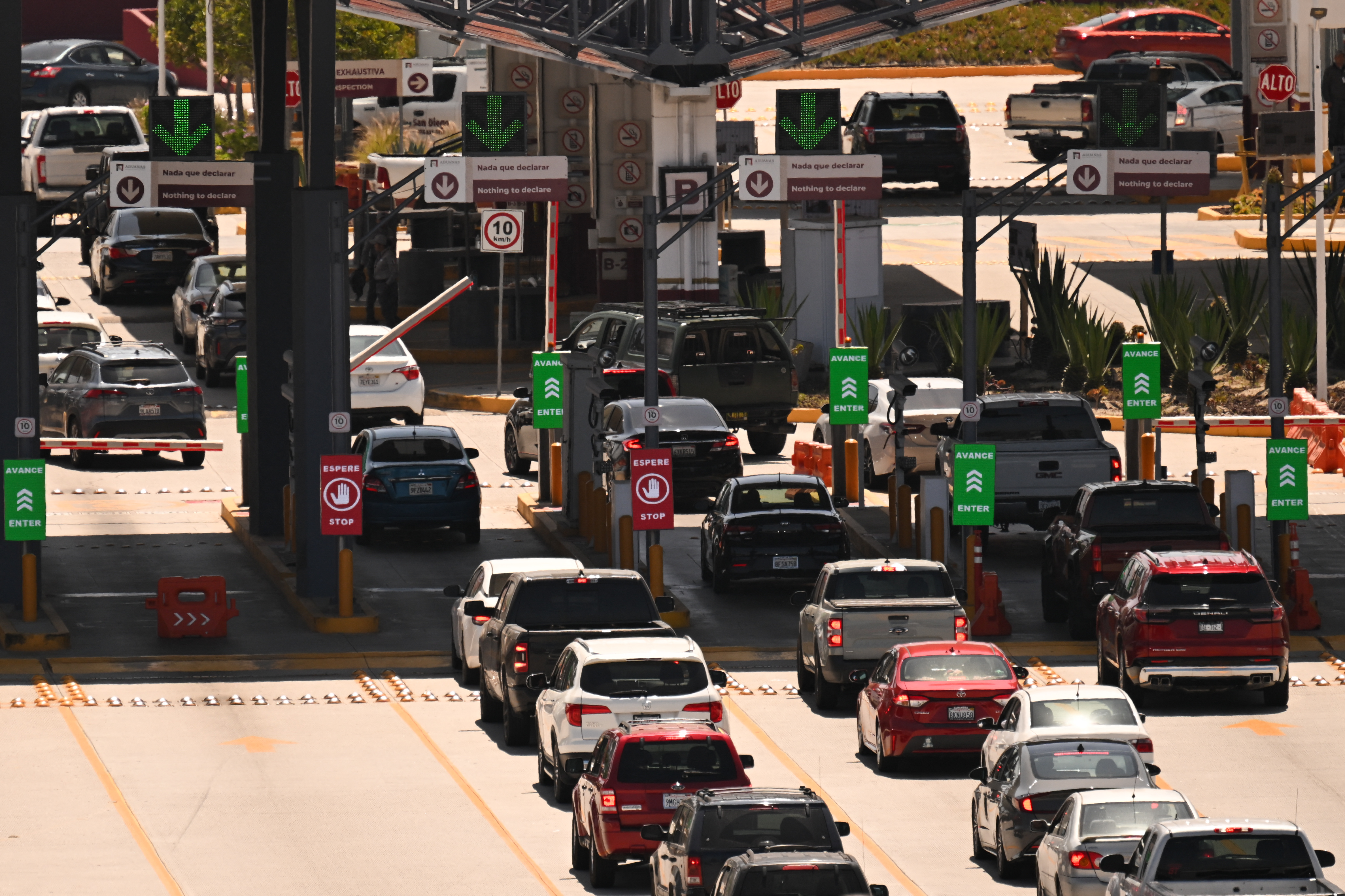
Vehicles exit the U.S. and enter Mexico at the San Ysidro Port of Entry between San Diego and Tijuana on April 24, 2025 | Source: Getty Images
Shootings in public places, attacks on law enforcement, and kidnappings have occurred even in areas frequented by tourists.
The advisory outlines enhanced security measures for U.S. government employees, who are restricted from intercity travel at night, must avoid hailing taxis on the street, and are required to use pre-arranged or app-based transportation. In certain areas, travel is limited to specific highways and only during daylight hours.
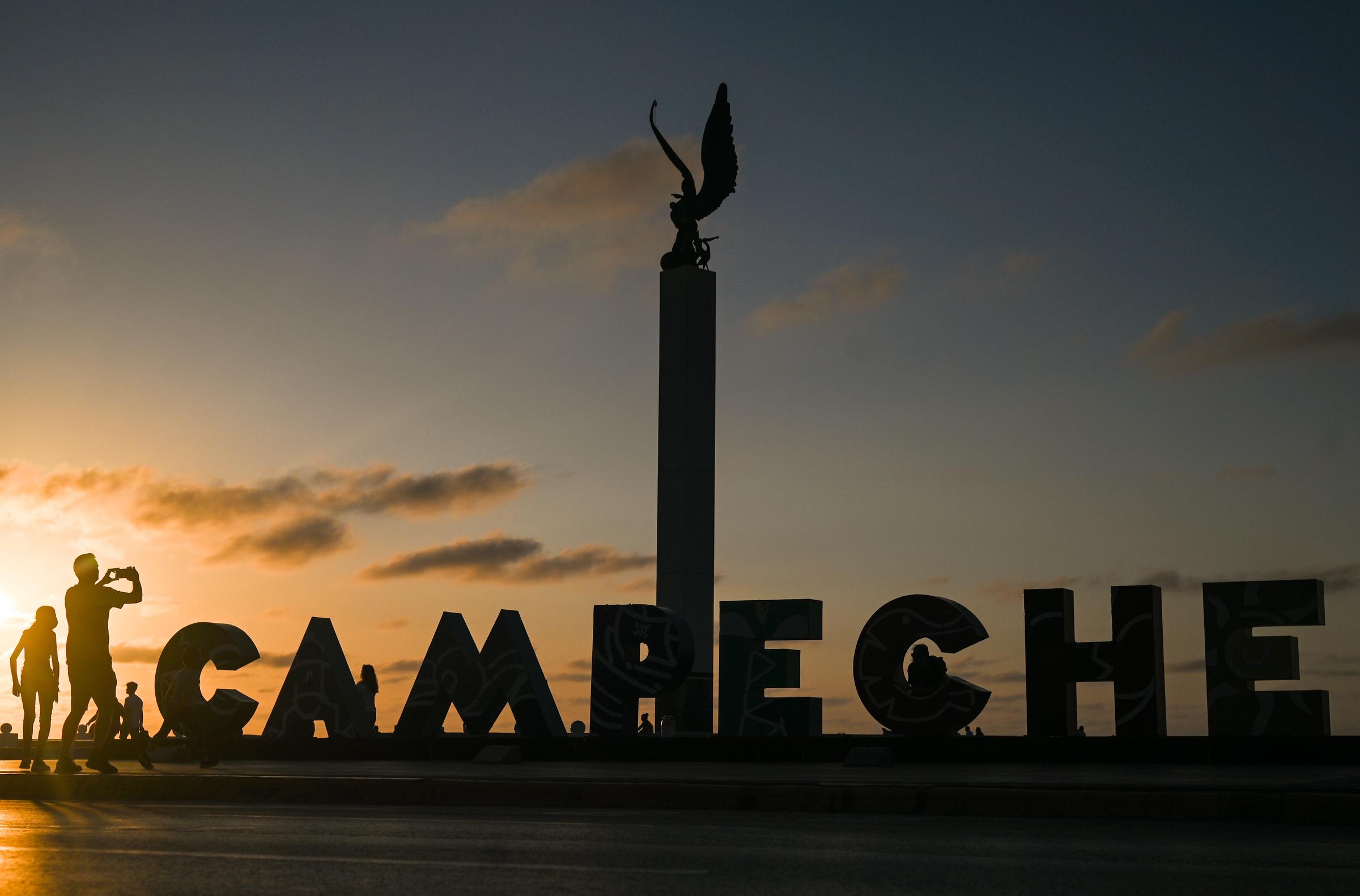
Visitors take photos in front of city name letters in San Francisco de Campeche, Mexico, on March 16, 2022 | Source: Getty Images
While threats remain severe in many parts of Mexico, not all states carry high-level warnings. Campeche and Yucatán are listed under "Exercise Normal Precautions," indicating a lower risk level. Nonetheless, travelers are advised to remain cautious, especially when moving outside urban areas.
The State Department emphasizes the importance of reviewing individual state advisories when planning travel to Mexico. Risk levels vary widely across the country, and conditions can change rapidly based on security developments.
